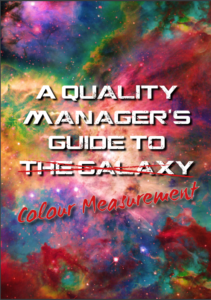
In the beginning, people would eat the food they eat, wear the clothes they wear and use the items they would use without much regard to what they really looked like. Nowadays, the first indication of quality of a product begins with how it looks; is it the right size and shape? Does it look like what it is supposed to? Is it the right colour?
If you go into a supermarket and buy washing powder, you would expect it to be white. If you opened the box and found it was yellow, chances are you wouldn’t be using it at all and may be a bit annoyed you spent your money on it.
Why should you measure the colour of ophthalmic lenses?
The thing is, if you don’t really know what you are looking for and what problems changing colours can indicate then you are going to be a bit stumped when someone complains that the colour is wrong or it wasn’t the same colour as last time.
What’s that phrase? Ah, that’s it:
Knowledge is Power!
With the right knowledge and understanding, you have the power to monitor your processes and make the necessary changes needed to keep colour and appearance quality not only good, but consistent. So, as we have said before, colour is a key indicator of product quality.
Look at anything near you; it can be anything. Where are you reading this? At a desk? On the sofa? On the bus? I assume you’re sitting down somewhere. Look at the material that makes up your seat and then the material that makes up the back rest. Do they match? Now take a look at another seat; do they match also? If you’re reading this at a desk, does the colour of the top match the colour of the legs? Everything that has been manufactured or produced has been subjected to some level of quality control to make sure all parts of the product match each other where they are supposed to.
Resources and documents from our knowledge base you may find useful
Stotto
3 Meer End,
Birstall,
Leicestershire.
LE4 3EH
Stotto 2024 | Terms, Conditions & Useful Information | Privacy Policy | Site Map